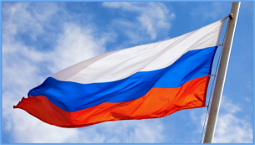Total War: Warhammer 3 DLC Prices Cause Controversy
It’s no secret that Total War: Warhammer 3 DLC prices are getting a little out of hand. For example, the most recent Steam sale featured the entire Warhammer 3 DLC roster available at a 75% discount, but prices seem to have skyrocketed since then. While some users claim they don’t mind the high prices, others are expressing frustration with the microtransactions, calling them “greedy” and “disgusting.”
“Games used to cost $50 – $60 and DLCs cost $10 – $15,” one user writes. “Now games cost $100 – $150 and DLCs cost $50 – $100.” The user goes on to claim that this issue isn’t just limited to Total War: Warhammer 3, but extends to skins in games like Valorant, where some skins are priced at $45.
“If we keep accepting this then devs will keep raising the prices,” a second user responds. “Same with lootboxes.”
“They’re greedy,” a third user writes. “Just like lootboxes.”
“At this point, it’s not just Warhammer 3,” a fourth user replies. “It’s Fortnite, Call of Duty, Destiny, Battlefield, and countless others.” The user goes on to list several other games with expensive cosmetic items in order to drive home the growing trend.
While some users claim that they don’t mind spending money on skins, others claim that they are “addictive” and “greedy.” One user writes, “I’ve spent about $2,000 on skins in games like CSGO, Overwatch, and Hearthstone.”
“I was the same, I was addicted,” another user replies. “But now I’m seeing things differently. I’m seeing how greedy devs are getting with their microtransactions.”
“I don’t mind paying for the skins, it’s the fact that they are ridiculously expensive,” a third user writes. “I would not mind paying $50 for a skin but not $1,000.”
“I prefer the default skins,” a fourth user replies. “I don’t really see the point of using different skins,” a fifth user writes. Several other users reply with examples of other games with expensive skins in order to emphasise the growing trend.
While some users suggest boycotting games with microtransactions, others point out that it isn’t that simple. “There are a lot of people who are impulsive and will just spend money on overpriced items that they see,” one user writes. “I know I would have bought skins and lootboxes if I had the money when I was younger,” another user replies.
While some users defend the practice of buying skins, others point out that some players may be spending money on skins to support game developers. “I have a friend who is a big skin collector,” one user writes. “He tells me he buys skins because he thinks it’s important for the devs to keep making games.”
Another user replies, “I don’t think it’s fair to say that about all skin collectors. I think in most cases, the people purchasing skins are just trying to spend money on items that they think are cool.”
The discussion expands to include the value of cosmetic items in free-to-play games. “I don’t think the devs are doing this because of lack of sales,” a player writes. “They are doing this because they want more money. Just look at Fortnite, where the devs are making so much money from these cosmetic items.”
“I don’t think I could ever sell my skins,” another player writes. “I think it’s wrong, I don’t know why people think it’s okay to sell them.” Several other players reply with examples of how they have sold their skins, and the revenue they have earned from doing so. Many players share their conflicted feelings about selling skins, but almost all agree that selling skins is more ethical than selling accounts and armies.
Some players believe that skins are just an additional form of personal enjoyment. “I really enjoy playing Total War games,” one player writes. “But I also really enjoy the fact that I can make my army look unique, it’s a very fun and satisfying process.”















